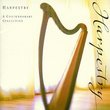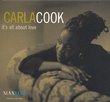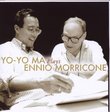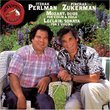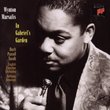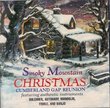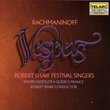| All Artists: Johannes Brahms, Emanuel Ax Title: Brahms: The Piano Quartets, Opp. 25, 26 & 60 Members Wishing: 0 Total Copies: 0 Label: Sony Release Date: 1/14/1991 Genre: Classical Style: Chamber Music Number of Discs: 2 SwapaCD Credits: 2 UPC: 074644584622 |
Search - Johannes Brahms, Emanuel Ax :: Brahms: The Piano Quartets, Opp. 25, 26 & 60
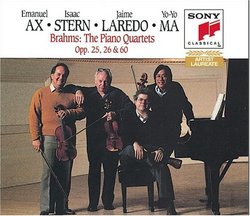 | Johannes Brahms, Emanuel Ax Brahms: The Piano Quartets, Opp. 25, 26 & 60 Genre: Classical
The piano quartet--one of music's many curious misnomers--relies on a particularly subtle interplay between its contrasting textures of strings and keyboard. The synergy of the four musicians on this CD (each a star on his... more » |
Larger Image |
CD DetailsSynopsis
Amazon.com essential recording The piano quartet--one of music's many curious misnomers--relies on a particularly subtle interplay between its contrasting textures of strings and keyboard. The synergy of the four musicians on this CD (each a star on his respective instrument), as in their account of the Mozart piano quartets, creates a shared dynamic that brings the expressive depths that Brahms positively poured into this idiom. They've managed to develop a style of breathing together with a kind of lucidly organic inevitability. The first quartet (in G minor) exhales Brahms's empathetic engagement with the chamber music of Schubert (the piece marked his Viennese debut) but would have a profound impact on Arnold Schoenberg, who wrote a notable essay on it extolling "Brahms the progressive" and later scored it for full orchestra. There's a similarly Schubertian leisureliness to the Quartet in A, but in these musicians' hands, its length unfolds as a horn of plenty, fertile in its musical invention, with an especially magical lushness in the romantic "Nachtstück" slow movement. But the real emotional centerpiece here is the C Minor Quartet (also known as the Werther Quartet from its purported inspiration in Goethe's novel). Ax, Stern, Laredo, and Ma bring a concentrated power and broiling originality to their account, instilling its moments of anguish and harmonic dislocation with searingly tragic energy. The Andante in particular emerges as a sustained rhapsody as the musicians play off each other's phrasing to build a statement of majestic eloquence. --Thomas May Similarly Requested CDs
|
CD ReviewsQuite good, overall new music guy | NY, NY United States | 05/23/2002 (4 out of 5 stars) "Along with the piano quintet, B major trio and clarinet trio, these three works represent the best example of Brahms' chamber music writing for piano and strings. All three of these pieces are truly incredible, and this is a recording that for the most part does justice to them. Often, classical music discs made up of some of the best performers in the world result in either commercial nonsense, such as the 3 Tenors, or polar extremes in musical ideas, such as Gould and Rose's Beethoven collaboration. This works better, as these are among the more mild performers on their respective instruments. Ax has always been a fairly tame performer compared to some of the other great pianists like Martha Argerich. He plays the notes, and he generally plays them quite well, but he often fails to truly make the magical things happen. Stern was no longer at the height of his powers at the time of this recording, but these quartets are technically fairly easy on the violin, and Stern's mind was certainly still working. He generally sounds quite good. Laredo makes an excellent violist, subtly adjusting from his violin sound and normal position to blend in as a middle voice. Ma was much younger when this was recorded, and sounds like it. He was a much simpler player, and wasn't nearly as adept at the incredible color changes and ideas he's learned to express over the last several years. The g minor piano quartet is probably the weakest piece of the three, though it's still fine. This group takes all the tempi slightly faster, and the famous finale races along at an incredible pace. It's classic Hungarian Brahms, masterfully written and masterfully played. The A major is a far more majestic piece, and also gets an excellent performance overall. Ax makes the minor section of the slow movement absolutely terrifying in one of his best performances, and the light scherzo and finale are kept sweet and simple. The c minor is incredibly dark and somber, and is given the best performance by the quartet. There are times when the music could have flowed more - in Yo-Yo's solo in the third movement, there are numerous breaks in the line that don't follow the harmonic rhythm, but he plays so beautifully it hardly matters. Overall, this is an excellent CD, not perfect, not unusual or distinct, but certainly a good recording of this great music, and worth owning." Famous four tackle Brahms ViolaNut | Boston, MA | 06/28/2002 (4 out of 5 stars) "These three pieces are some of the greatest in the literature, and for the most part this is a good recording. Unlike many chamber music collaborations between soloists, these four don't let the music disintegrate into a shouting match or an ego contest (thank goodness). However, as usual, Stern's sound is rather thin and doesn't quite hold up to the power and depth that Brahms demands; I would also prefer a "real" violist rather than a "switch-hitter", but Laredo is mostly admirable and perhaps he simply adjusted to better balance Stern's more slender tone. And nothing beats the slow movement of the c minor quartet - this and the third movement of Beethoven Op. 132 would be my choices for that old "If you could only take ____ to a desert island..." question. Overall a commendable collection; the good parts far outweigh the weak." Brahms ViolaNut | 10/17/2002 (5 out of 5 stars) "I think that Brahms had a stroke of genius when he wrote these quartets. They become even more magnificent when left to the artistry of these four musicians! This is one of my most treasured cds, and I would suggest it to anyone; musician, classical music fan, or just music fan. My favorite of the quartets is the g minor-it has such energy and is full of sound and substance. I wish that when I have the opportunity to play this (I play the viola) that it comes near to the quality of this recording. I also bought another cd of the same grouping of musicians and love it as well-these four have a magic together! I highly suggest this recording! It serves well to listen to for enjoyment, and also as a source for ideas of musicality."
|

 Track Listings (8) - Disc #1
Track Listings (8) - Disc #1